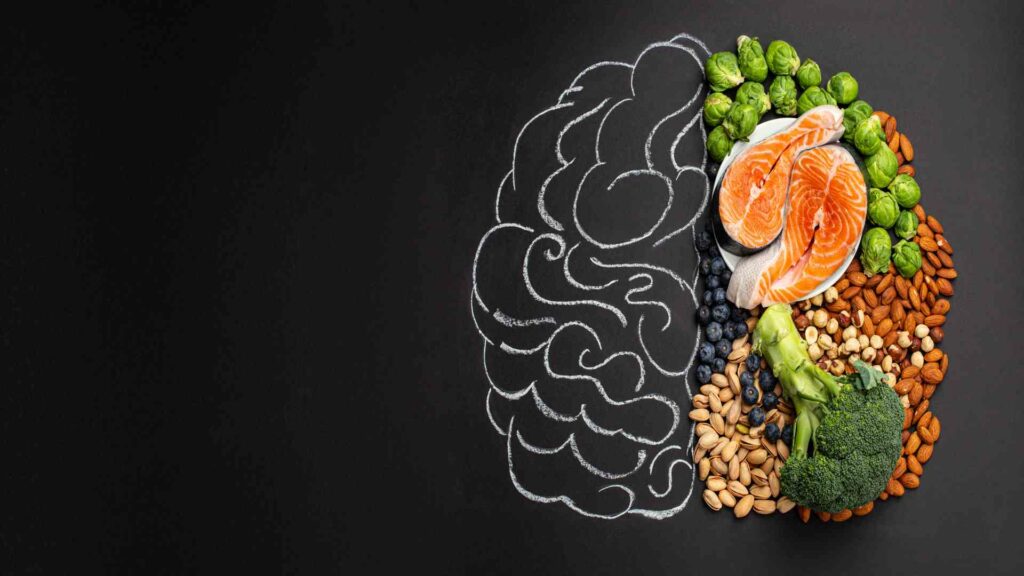What is Nutrient Density?
Nutrient density is an essential factor to consider when looking at the nutritional value of food. It’s not just about calories, fat, and other macronutrients – nutrient density refers to the concentration of beneficial vitamins, minerals, and other micronutrients, such as boron, that meet our energy needs.

Nutrient Density
Is Nutrient Density and Energy Density the Same Thing?
While nutrient density measures the number of essential vitamins, minerals, phytonutrients, antioxidants, and other beneficial nutrients in a food relative to its calorie content, energy density measures the number of calories per given weight or volume of a particular food.
Nutrient-dense foods contain essential vitamins, minerals, fiber, and other nutrients with few calories compared to their energy content. This means you get more nutrition per calorie when eating these foods, such as fruits, vegetables, legumes, and whole grains.
Energy dense foods have more calories for every gram than nutrient dense foods and provide little nutritional value. These types of food tend to be high in fat, sugar, or salt and are often processed. Examples of energy dense foods include chips, pastries, candy, and soft drinks.
Nutrient density then considers a food’s nutritional content compared with its caloric content. Energy density looks solely at the number of calories per gram in that food item or recipe. Choosing nutrient density is vital to living a happy and healthy lifestyle.
Nutrient Density and Health
Nutrient density is essential for overall health and well-being. Eating nutrient dense foods provides the human body with various nutrients it needs to stay healthy. Additionally, eating more nutrient dense foods can help reduce chronic diseases, boost immunity and energy levels, and improve cognitive performance.
It’s also important for weight management since lower-calorie foods with high nutrient density fill you up faster and keep you feeling full longer than processed or fatty junk food.
When it comes to nutrition, quality matters as much as quantity; adding nutrient dense foods to your meals and snacks provides your body with the essential building blocks it needs to function at its best.
But What are Nutrient-dense Foods?
Nutrient-dense foods contain essential vitamins, minerals, and other beneficial substances, such as boron. They have high nutritional value and provide numerous health benefits when consumed in moderation.
Foods such as fruits, vegetables, legumes, nuts, seeds, dairy products, and fish are all nutrient dense. Eating these foods will ensure you get all the nutrients your body needs for optimal health.
With so many benefits, here is a list of essential nutrient-dense foods:
1. Salmon
Salmon is a superfood due to its high nutrient content. It is the go-to source for increasing omega-3 fatty acid intake. Omega-3s are essential for maintaining good health, and they’ve been linked to a lower risk of many serious diseases
A single serving of wild Atlantic salmon includes 2.2 grams of omega-3 fatty acids, high-quality animal protein, and generous amounts of vitamin D, B12, selenium, and calcium and magnesium which is more than enough to improve your health and well-being.
2. Kale
Kale is the green that reigns supreme. It is incredibly low in calories and packed with various vitamins and minerals. Kale contains high amounts of Vitamin C, Vitamin B6, Vitamin A, and Vitamin K1, magnesium, calcium, potassium, copper, and manganese – making it a nutritional powerhouse.
It’s also healthier than spinach due to its lower oxalate content which can help improve nutrient absorption from other food sources.
Kale requires boron micronutrients for high crop production. It is suggested to use 2-3lbs of boron per acre before planting.
3. Garlic
Garlic is truly a wonder ingredient. Its fragrant aroma and distinctive flavor can transform even the simplest dishes into something extraordinary.
It contains several vitamins and minerals, including Vitamins C, B6, and B1, potassium, calcium, manganese, copper, and selenium. Plus, it is packed with beneficial sulfur compounds like allicin which may help to lower blood pressure and cholesterol levels while raising HDL (good) cholesterol.
All in all, adding garlic to your diet could reduce your risk of heart disease in the long run. Boron, copper, zinc, and molybdenum all increase garlic growth and bulb yield.
4. Potatoes
Potatoes are incredibly versatile and can be cooked in many different ways. Boiling, baking, roasting, mashing, and frying are all great techniques that bring out the best flavor of potatoes. It’s also a great way to add some variety to your meals!
Apart from their taste and versatility, potatoes offer various health benefits. They provide key vitamins such as vitamins C and B and important minerals like magnesium, potassium, copper, iron, and manganese. All these nutrients help boost immunity and maintain metabolism levels.
Boron is an essential trace mineral required for the health and quality of potatoes. They typically contain 0.18mg of boron per 100g of potato, providing an adequate amount for optimal health and development.
5. Dark Chocolate (Cocoa)
Dark chocolate is a nutritional powerhouse packed with antioxidants that help protect your body from oxidative stress. It also helps improve blood flow and reduces blood pressure and cholesterol levels, and benefits brain function. Some studies suggest that people who eat dark chocolate regularly have better memory scores.
When choosing dark chocolate, look for one with a high cocoa content (at least 70%) to get the most out of its health benefits. The better ones contain at least 85% cocoa.
How to Increase Nutrient Intake in Diets
Making small changes in the foods we consume regularly is an easy way to ensure that our diets are as nutrient dense as possible. Foods such as legumes, whole grains, and dairy products can be part of a balanced diet, but other healthier alternatives are also available. For example, replacing standard white bread with whole wheat or rye bread will add more fiber and micronutrients.
The same goes for ingredients used in cooking – instead of using oil or lard when frying vegetables, try using ingredients like herbs, spices, and vegetable broth for added flavor without adding unnecessary fat or salt.
Final Note
Nutrient density is an important concept in nutrition science. It helps us to evaluate the nutritional value of foods and understand how different types of food affect our health.
Eating a diet high in nutrient dense foods can provide essential nutrients that may help protect against chronic diseases while also helping to maintain a healthy weight.
It’s important to pay attention to portion size when considering nutrient density; too much food can lead to excess calories and contribute to weight gain.





